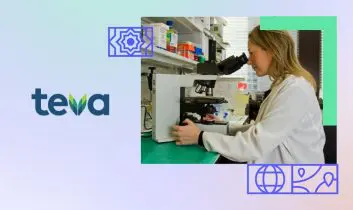
Localization Leaders: Meet KAYAK’s Bea Verdasco
Meet Bea Verdasco, Director of Localization at KAYAK, the online tech company that revolutionized the travel industry by introducing metasearch, allowing visitors to search and compare prices for everything related to travel – accommodation, flights, cars, and vacation packages – in one place. Today, KAYAK is the world’s leading travel search engine, available in 25+ languages and spanning 60+ countries and territories. We spoke with Bea to learn how her department handles localization for KAYAK and its portfolio of travel brands.
Thanks for meeting with us, Bea. Let’s start with a bit about you and your background. How did you end up working in localization at Kayak?
I am originally from Asturias, in Northern Spain. Growing up, I was a voracious reader with a vivid imagination. Immersing myself in books allowed me to live other lives and travel to other places. I chose an obvious career path for a bookworm: the Humanities – teaching, translation. I became a language teacher in my teens, teaching English to children as an after-school job. I went on to major in English and Applied Linguistics at university and then spent time in the US with an exchange program that allowed me to get my Masters’ in Linguistics.
I guess I didn’t find teaching challenging enough, because I also started taking on freelance translation jobs. I wasn’t even aware of the concept of localization until I moved to the UK with my first corporate job, at a travel startup called LateRooms based out of Manchester, as part of their pioneering international team. Localization those days often involved us translators sitting next to engineers to hard-code translations onto the app. Eventually, this small OTA was acquired by a massive travel group headquartered in the beautiful Mediterranean island of Mallorca, home to many of the big players in the global tourism and travel industry.
I continued working on international expansion for travel companies in a variety of roles including SEO, social media, and content strategy. I then switched from travel to something quite different. I was given the opportunity to set up the localization framework for an Australian design marketplace called Redbubble. After launching Redbubble’s first 3 non-English speaking markets, it was back to travel for me as I relocated to Berlin to work for KAYAK, with what I consider to be the best globalization team in the world.
Wow, sounds like you’ve had an amazing career! Speaking of your globalization team, I find it fascinating to learn how each company handles localization differently. Can you tell me about the structure of your department at Kayak?
Localization takes a village: the whole business needs to be engaged, so it is not only about “pure” l10n roles, but also – as Anna Schlegel calls them – “Globalization Champions” across functions that are key to driving a successful international strategy. At KAYAK, which operates a portfolio of global travel metasearch brands: KAYAK, SWOODOO, checkfelix, momondo, Cheapflights, Mundi, HotelsCombined and travelsearch, we have a very strong globalization culture, and new market launches usually involve cross-functional teams including product, engineering, marketing leads, commercial leads, legal, and localization.
In the early days of globalization at KAYAK, a typical locale launch process involved hiring a Localization Specialist who took care of all localization needs for that locale, from translations to Consumer Support to Data Quality checks. Most of our current Localization team members are those same pioneering market specialists, with the average tenure in our team being close to 6 years.
1.5 years ago, we moved to a fully outsourced localization model, sending out all translations to 3rd parties while leveraging the deep business knowledge of the internal team to solve complex problems such as massive content pipelines, quality management, or integrating machine translation APIs. Over time, the increasing size and complexity of the global projects we tackle have required us to relearn, retrain, and reinvent what we do and how we do it.
Ultimately, localization is about creating great technological experiences for people who may not speak your language or have the same background. Technology opens up opportunities and possibilities – localization brings them home to billions of humans.
Are there any localization challenges you find unique to the travel industry?
The general principles of internationalization and localization apply to any industry, and I believe that most localization professionals who’ve seen a few localization programs can easily move across industries. There are certain basics to any globalization and internationalization process:
- Multilingual database structures;
- A tech product that can be adapted to additional languages/locales;
- A strong content strategy that accurately funnels each content type through the relevant workflow;
- Clear criteria and business metrics around impact/ROI to inform architecture and content strategy decisions;
- Building up great language assets, such as Translation Memories and Terminology Glossaries that are specific to your domain and unique to your business;
- Using those assets to complement MT models that allow you to create content at scale;
- A culture that fosters and facilitates cross-functional work, so that everyone from customer service to product to marketing knows that every content stream needs localization;
- A strong team of localization experts that can build and implement the right workflows and capabilities to enable all of the above.
Are there any markets that were particularly challenging to break into for one reason or another?
We’re an experienced Localization team handling translation in 25+ languages, but when we started working on Hebrew and Arabic, it was a great learning experience in the nerdiest sense.
Launching our Israel site in Hebrew, and our Saudi Arabia site in Arabic was a complex undertaking – before we even began translating text strings, we had to overhaul our in-house TMS so that it could handle RTL. Adding RTL to our Localization processes was a mind-bending journey into the looking glass.
We all know the past couple years have had a huge impact on the travel industry. How was your work in localization and your team affected by the pandemic? Do you think it will change your work going forward or what adjustment will your team or Kayak in general have to make in the new normal?
We had to examine all our projects through the lens of COVID-19 and decide where to focus our attention. We knew we had to help travelers find the most up-to-date information about the ever-changing entry requirements around the world. One example of what we did was coming together across teams to create a comprehensive Travel Restrictions resource which made KAYAK the go-to site for this type of information that users were in need of, on a par with the CDC, IATA, and the US State Department.
To get this off the ground, we turned around 15k translated words x 4 locales in under a week. Since then, we’ve been updating and refreshing this resource to make it more useful to our customers. The content includes tracking of active COVID cases by country, a clickable map, and email signup for users to receive alerts when the country they’re interested in changes its border status.
Pulling together to help our users in a difficult and unpredictable scenario was a great example of one of KAYAK’s values: Win as one. We emerged stronger and more united as a team, even if we were all working from home.
A big business lesson from this past year and a half is how critical localization is to sustain business growth. It is no longer an option not to be global and not to engage with local users in relevant ways.
Impressive! Seems like you really made the most of a difficult situation and pulled through for your customers. And finally, what piece of advice do you have for those working in localization or who want to enter the field?
To those working in localization, I’d say “good on ya”, because Localization is so hot right now. A big business lesson from this past year and a half is how critical localization is to sustain business growth. It is no longer an option not to be global and not to engage with local users in relevant ways. My advice is to gain a deep understanding of how localization enables global growth for your business, and to adopt a growth mindset of lifelong learning and retraining so you can solve different problems in rapidly-changing scenarios.
To those who want to enter the field: good call. Localization sits at the intersection of language and technology, and it requires both technical and linguistic knowledge. The more you know about how language works, the better systems you can build to internationalize consumer products, and the better you can adapt to the cultural subtleties that affect user behavior.
Ultimately, localization is about creating great technological experiences for people who may not speak your language or have the same background. Technology opens up opportunities and possibilities – localization brings them home to billions of humans. My advice is again to engage in constant growth and keep up with technological advances in the industry: learn, relearn, retrain yourself, so you can become the secret ingredient that enables unstoppable growth for your business.
Need fast, high-quality translation?
Translate nowWhat our customers are saying







